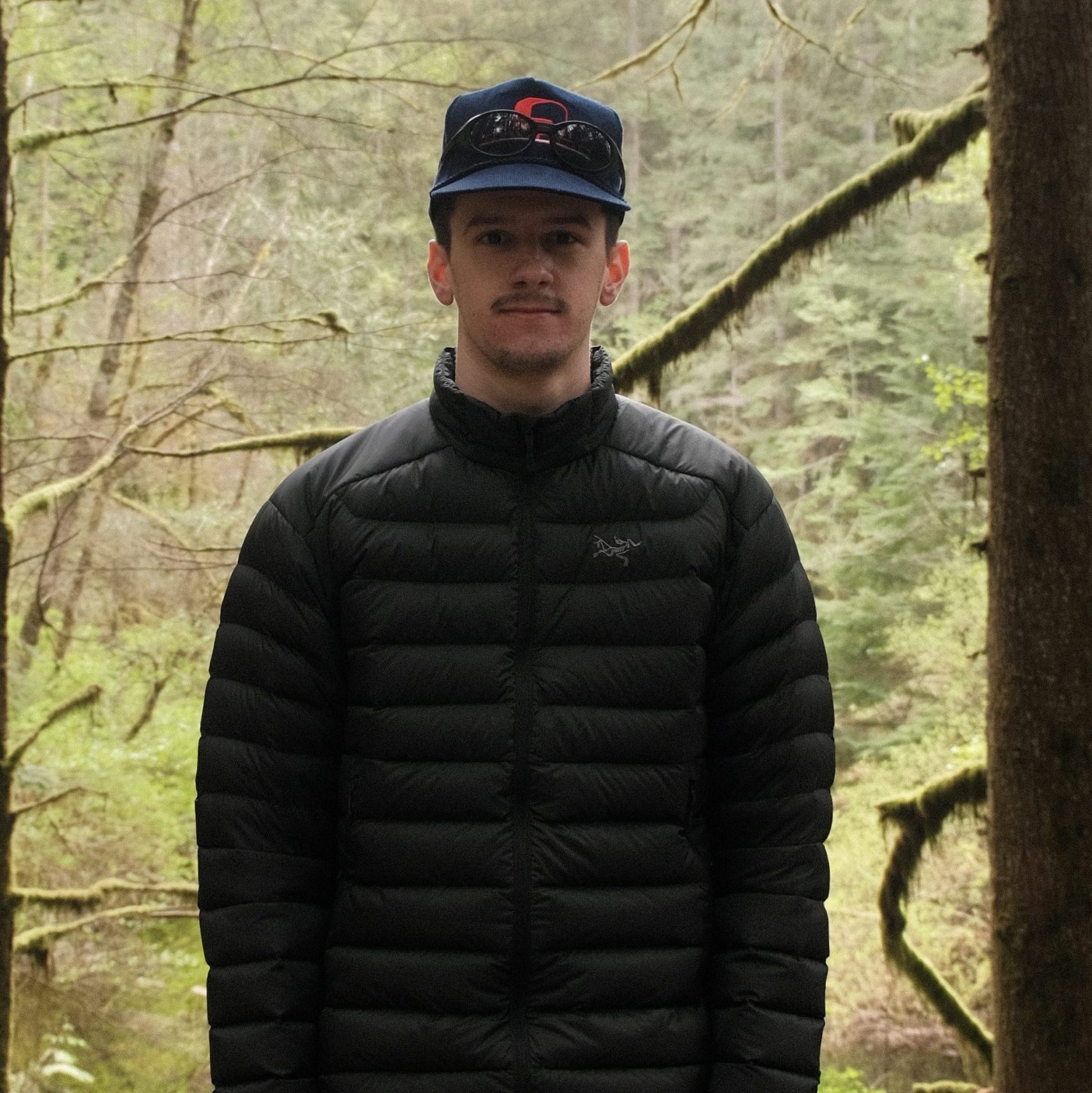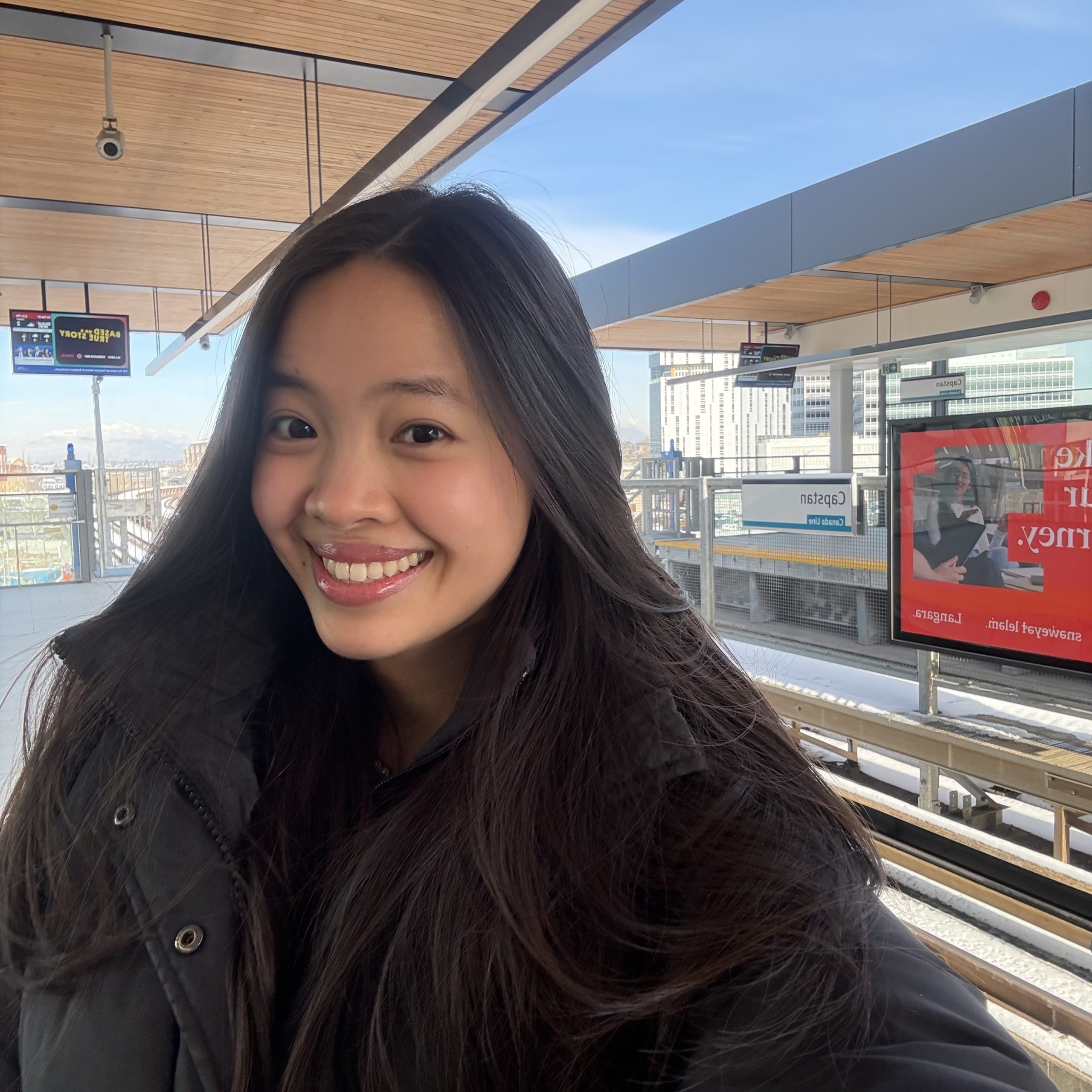Malcolm Davey

About
| Name | Malcolm Davey |
| Pronouns | He / Him |
| Program | Bachelor of Science in Applied Biology |
| Major | Sustainable Agriculture and Environment |
| Year | 4 |
| Hometown | Abbotsford, BC |
Finding Belonging in a Close-Knit Faculty
Malcolm Davey is a fourth-year student in the Faculty of Land and Food Systems (LFS), majoring in Sustainable Agriculture and Environment within the Applied Biology program. Originally from Abbotsford, British Columbia, Malcolm grew up on a farm, which shaped his passion for agriculture and the environment. Wanting to stay close to his roots, he chose to study at UBC, where LFS offered a meaningful connection to local issues and a strong sense of community. He values the familiarity that comes with a smaller faculty, where seeing friendly faces in class or walking down Main Mall brings comfort and a feeling of belonging.
Currently working at Arc’teryx, Malcolm is exploring his career options in sustainability, policy, and law. He believes that being open to different opportunities has been a strength throughout his university journey. As a first-generation student, he encourages others to be flexible, patient, and proactive in using the support systems available at UBC. For Malcolm, LFS is more than just a place to study. It is a place to grow, connect, and find purpose.
What are three adjectives that describe you?
Patient, Perseverance, Loving
Why did you choose to transfer to LFS?
I chose LFS because, as someone from British Columbia, it made sense to attend a school that understands the issues happening in my home province and the surrounding areas. I grew up on a farm, and agriculture has always been a big part of who I am. That is why the studies and the Faculty really spoke to me. They felt personal and meaningful. The connection I made to what I was learning made it easier to stay motivated in my degree.
Initially, I was nervous about moving to another province for school, but I decided to stay closer to home and attend UBC. Being near my family during the early years of my degree felt important. It means a lot to me that I can study close to home at a university that truly cares about the local community.
What is the greatest advantage of studying in a smaller Faculty at UBC?
The biggest advantage for LFS is the size of the Faculty. With a smaller Faculty, you can remember faces and become friends with more people than you think. Although it is hard in the beginning, those familiar faces become part of the experience that makes LFS a strong and inclusive environment, making studying and other challenges easier. At the end of the day, whether in an LFS class or walking down Main Mall, there is always a face or two you recognize, and it feels like family and brings comfort, especially during harder times in the Faculty. It is a cool, busy environment, yet still a small space where people know each other. You get the experience of a big university lifestyle, but also the small university feeling where relationships can be built in the classroom.
What kind of career do you hope to pursue after your degree?
I’m not 100% sure yet, but I see this as an advantage. Throughout my university journey, I’ve tried to prepare for the unknown by not putting all my eggs in one basket. Right now, I’m working at Arc’teryx, and I could see myself staying and maybe pursuing a career on their sustainability team. They have progressive and interesting ideas around sustainability, and it is a company that stays grounded in purpose-driven work. I’d love the opportunity to continue contributing there if I could.
I am also interested in working in policy, possibly for the Canadian or BC government. I want to be involved in developing policy, shaping laws, and raising awareness within the agricultural community.
Another path I’m exploring is law. I have been preparing for the LSAT, and while it is a big step, I believe the goals I have set so far have been achievable. I want a career that challenges me and feels meaningful.
What has been your favourite course and why?
My favorite course is APBI 260, taught by Sean Smukler. Anyone who has taken the class knows why. It came at the perfect time in my university journey. The course includes a major research field component, with one hour in the classroom and three hours spent on the UBC Farm each week. At the time, I was not entirely sure what I wanted to pursue in my career. Since this is an introductory course, the hands-on experience and Sean’s endless knowledge helped shape my understanding of what my degree could look like and the kind of job I might pursue after graduation. Not many courses offer this kind of experience. It was not overly stressful, and the peaceful environment of the UBC Farm, combined with the chance to study alongside close friends, made it even more enjoyable. It was the perfect course to explore career interests: fun, insightful, and taught by an outstanding professor.
What is one resource, event, support service or website that has helped you during your time in LFS, and why should others be aware of it?
There is a special feeling that comes from being in a small Faculty when your academic advisor knows you by name and remembers what you talked about before. Every advisor I have spoken to in LFS has guided me through stressful times, and their support and presence are something I have really come to rely on.
LFS Student Services makes sure students feel supported, safe, and included. I have never once felt judged or dismissed. They deserve so much more recognition for the work they do. It is not an easy job, and they go above and beyond every single day. I feel incredibly thankful, and I truly believe we have the best people possible in those roles. I would encourage you to make the most of the support that LFS Student Services offers.
What strategies would you recommend for adapting to the new university setting?
One of the most important things is to be flexible. When I began my studies, I had no idea what to expect. As the first person in my family to attend university and the oldest sibling, I had to figure out my own strategies along the way. Flexibility has been essential. There will be moments when certain things may not align with your strengths or interests, and learning to adapt is key. Without flexibility, the journey can become much more difficult.
It is equally important to be patient. You will experience both high points and low moments, and it helps to remember that each day brings a new beginning. Studying at UBC is a privilege, and not everyone has the opportunity to be part of this environment. Taking the time to recognize the beauty of the community around you can make a meaningful difference.
Make space to enjoy the experience. There will be times meant for laughter, connection, and rest. Taking care of your well-being should always be a priority, as it shapes the quality of your university experience.
In the end, it is the memories you carry with you, not just the academic achievements, that make your time at UBC truly unforgettable.
Tagged with:







